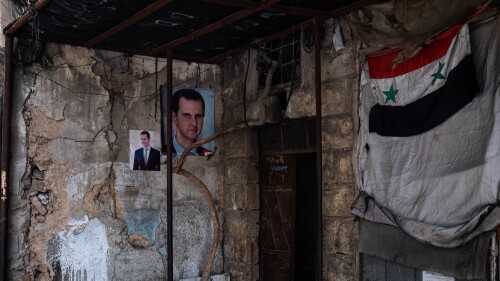The attacks of September 11, 2001, made me feel more secure, unlike most Americans. Finally, the country was focused on issues that had long worried me.
“The FBI is engaged in the largest operation in its history,” I wrote in late 2001. “Armed marshals will again be flying on US aircraft, and the immigration service has placed foreign students under increased scrutiny. I feel safer when Islamist organizations are exposed, illicit money channels closed down, and immigration regulations reviewed. The amassing of American forces near Iraq and Afghanistan cheers me. The newfound alarm is healthy, the sense of solidarity heartening, the resolve is encouraging.”
But I agonized whether it would last. “Are Americans truly ready to sacrifice liberties and lives to prosecute seriously the war against militant Islam? I worry about US constancy and purpose.”
And right I was to worry, as the alarm, solidarity, and resolve of late 2001 have plummeted lately, returning us to a roughly pre-September 11 mentality. A number of recent developments leave me pessimistic. Within America:
- The USA Patriot Act, a landmark of post-September 11 cooperation between the military and law enforcement, passed in the Senate 98-1 in October 2001. Last week, the same bill stalled in the Senate.
- The mainstream press does not take Islamist aspirations seriously and sees the war on terror basically as over, as shown by Maureen Dowd‘s comment in the New York Times that the Bush administration is trying “to frighten people with talk of Al Qaeda’s dream of a new Islamic caliphate.”
- Harvard and Georgetown universities each accepted $20 million for Islamic studies from a Saudi prince who overtly promotes his government’s Wahhabi outlook, Alwaleed bin Talal.
- A Florida jury somehow managed to overlook the massive evidence of Sami Al-Arian‘s leading role in Palestinian Islamic Jihad and acquitted him on this charge.
- One leading Islamist organization, the Council on American-Islamic Relations, boasts an endorsement from Wells Fargo Bank, an invitation from Secretary of State Condoleezza Rice, and a letter of congratulations from the president’s brother, Jeb Bush. Another, the Muslim Public Affairs Council, hosted representatives of the departments of Justice and State at a conference last week.
Then American foreign policy:
- Fixated on the goal of perfecting Iraq, where no major danger remains, the Bush administration seems to be allowing the Iranian regime to build nuclear weapons, stipulating only that the Russians carry out the uranium enrichment, an ineffectual safeguard.
- Pursuing its democracy campaign to its logical conclusion, Washington is signaling a willingness to deal with Islamists in Lebanon, the Palestinian Authority, Egypt, and elsewhere, thereby bolstering radical Islam’s power.
Then international setbacks:
- Elite opinion ascribes the French intifada only to faults in French society, such as unemployment and discrimination. When one leading intellectual, Alain Finkielkraut, dared bring Islam into the discussion, he was criticized savagely and threatened with a libel lawsuit, so he backed down.
- The July transport bombings in Britain seemingly highlighted the dangers of homegrown Islamism. Five months later, however, lessons learned from this atrocity have been nearly forgotten. For example, the Blair government appointed an Islamist banned from entering America, Tariq Ramadan, to a prestigious taskforce; and it abandoned efforts even temporarily to close down extremist mosques.
- As Israel’s population lurches leftward, led by a defeatist government (“We are tired of fighting, we are tired of being courageous, we are tired of winning, we are tired of defeating our enemies,” Vice Prime Minister Ehud Olmert declared), it forgets the lessons of Oslo, appeases its enemies, and virtually invites more violence against itself.
Rudolph Giuliani worries that we are “going backward in the fight against terrorism.” Andrew McCarthy concludes that “the September 10th spirit is alive and well.” Steven Emerson tells me that “pre-9/11 political correctness has reasserted itself.”
And I worry that not even a catastrophic act of terror will return a desensitized West to its post-September 11 alarm, solidarity, and resolve. John Kerry‘s notion of terrorism as a nuisance similar to prostitution or gambling has taken hold, suggesting that future acts of violence will be shrugged off. And, even if mass murders do awaken the public, a next round of alertness will presumably be as ephemeral as the last one.
If there ever was a crisis, it is over. Life is good, dangers are remote, security appears adequate … sleep beckons.







